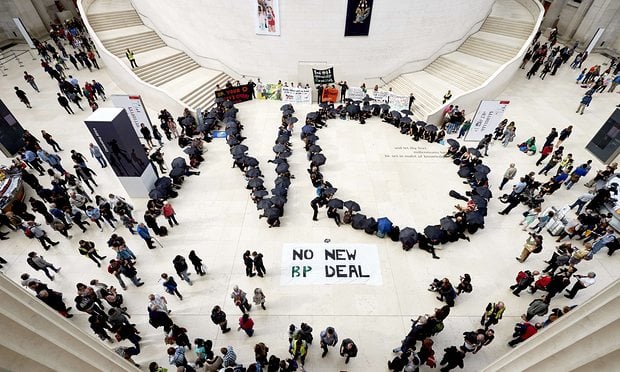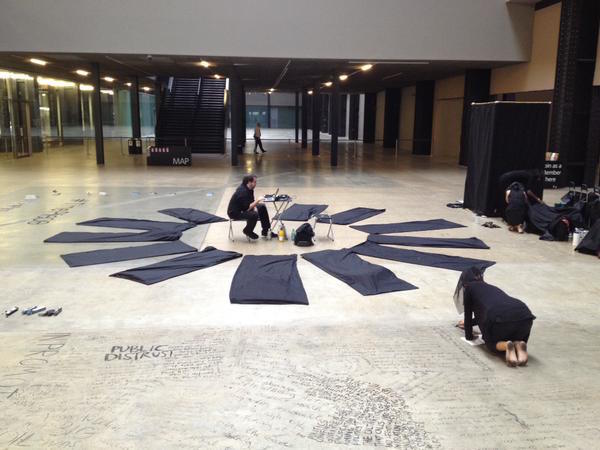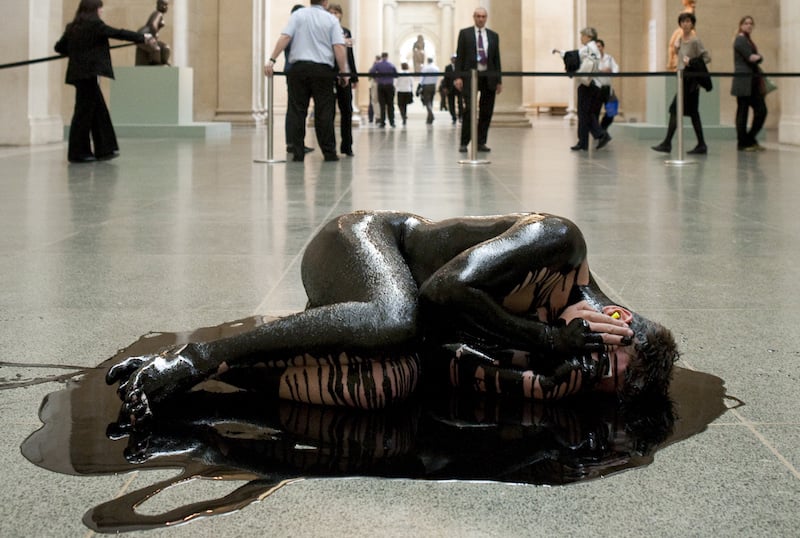Politics
Will British Museums Reveal Extent of Secret BP Funding?
An anonymous employee said BP used "bullying" tactics.

An anonymous employee said BP used "bullying" tactics.

Sarah Cascone

British Petroleum’s sponsorship of a number of British museums has come under the microscope thanks to an ethics investigation of the UK’s Museums Association.
London’s Tate, British Museum, and National Portrait Gallery have all been accused by activist organization collective Art Not Oil of letting the oil company’s agenda influence curatorial decision making. In March, the Tate announced plans to cut ties with BP following the end of the current sponsorship term in 2017. The British Museum and National Portrait Gallery have yet to follow suit, despite growing public pressure from celebrities including Vivienne Westwood and Emma Thompson.
Meanwhile, in the current legal hearings initiated by London arts group Platform, with support from information rights group Request Initiative, the Tate has resisted requests to disclose precise figures related to the sponsorship deal, citing confidentiality agreements. (Under duress, the museum has already released figures up until 2006, which show relatively small annual contributions.)
As reported by the Guardian, the information commissioner at the hearing initially was swayed by the museum’s argument that to release more recent figures could negatively impact relations with other sponsors, but the museum was reportedly unable to provide concrete examples of possible damage.

Protesters participating in the 25-hour “textual intervention” against BP at Tate Modern this weekend. Courtesy Liberate Tate.
The Tate also revealed that it had not even asked BP for permission to share the numbers, causing Peter Lockley, counsel for the information commissioner, to inform the Judge Fiona Henderson that “the case for prejudice in fact has not been made.”
“We are delighted that the information commissioner today performed a dramatic U-turn and has agreed with us that there is no justification for Tate’s secrecy around the amount of sponsorship negotiated with BP,” Brendan Montague, a director of Request Initiative, said in a statement.
Henderson will issue a ruling on the matter at the next hearing; the date has not yet been announced.
Speaking anonymously, an employee at British Museum told Artforum that BP has been “extremely demanding of the museum” and used “bullying” tactics.

Amy Scaife’s protest performance Human Cost at the Tate Britain’s Duveen gallery in 2011. Courtesy Liberate Tate.
In other documents attained by Art Not Oil through the UK’s Freedom of Information act, evidence has emerged that BP has leveraged its financial support of institutions to influence the museums. Reportedly, BP was involved in museum responses to anti-BP protests and was asked for approval to show a work by an aboriginal artist at the British Museum during the company’s controversial efforts to drill in Australia. In response, the British Museum denied that BP wielded any curatorial influence.
“We’ve always known that BP uses sponsorship deals to buy a social legitimacy that it doesn’t deserve,” Chris Garrard, who compiled his findings into a report titled “BP’s Cultural Sponsorship: A Corrupting Influence,” told the Guardian. “Now we have specific evidence of where our museums and galleries have been complicit in advancing BP’s business interests and keeping the voices of the company’s critics in check.”
The Museum Association’s Alistair Brown told the Guardian that its code of ethics suggests museums only accept funding from organizations that share its values, and asks institutions to operate with transparency. Cultural organizations with ties to fossil fuel companies have been subject to a great deal of criticism, with a number of high-profile protests both in the UK and the US, perhaps influencing energy magnate David Koch’s resignation from the board at New York’s American Museum of Natural History.